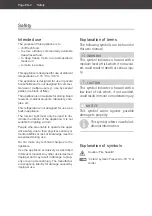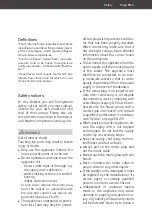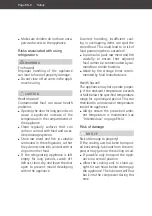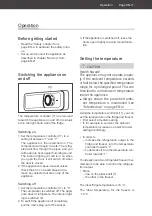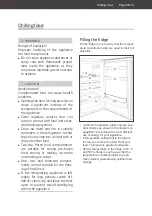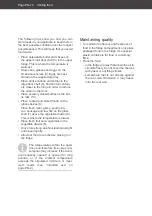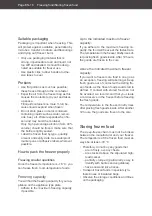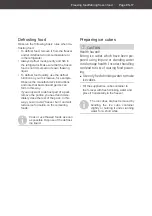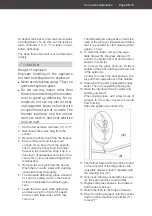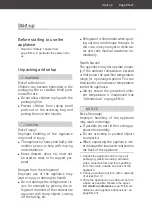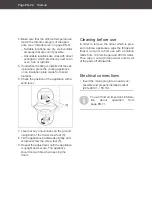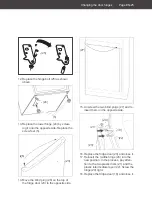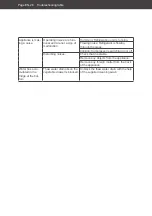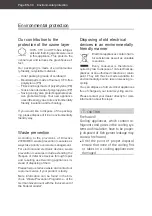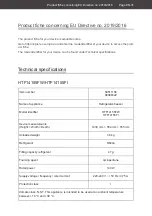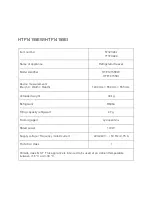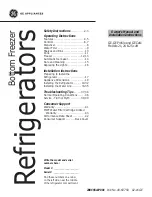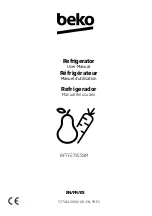
Care and maintenance
Page EN-18
Care and maintenance
WARNING
Risk of electric shock!
Touching live parts may result in severe
injury or death.
■
Before cleaning, unplug the mains
plug from the socket or isolate/un-
screw the fuse.
■
When pulling out the mains plug, al-
ways take hold of the mains plug it-
self and never the mains cord.
CAUTION
Risk of injury!
Dangers for children and people with
limited physical, sensory or mental ca-
pacity!
■
Cleaning and user maintenance must
not be performed by unsupervised
children.
NOTICE
Risk of damage!
The surfaces and appliance parts can be
damaged through improper handling.
■
Never use harsh, granular, soda, acid,
solvent-based or abrasive cleaners.
These attack the plastic surfaces.
All-purpose cleaners with a neutral
pH are recommended.
■
Door seals and plastic parts are sen-
sitive to oil and grease. Remove con-
taminants as quickly as possible.
■
Only use soft cloths.
Checking and cleaning the
door seals
The door seals must be checked regularly so
that no air can enter the appliance.
1. To test them, clamp a thin piece of paper
in various places. The paper should be
difficult to pull through at all points.
2. If the seal is not uniform everywhere:
Warm the seal in the appropriate places
in front of you with a hair dryer and pull it
out with your fingers.
3. Only clean dirty seals with clean water.
Cleaning the exterior
– Painted surfaces
Use only light pH-neutral soapy water.
– Stainless steel surfaces
Use special stainless steel cleaner from a
specialist shop. Never use polish.
Cleaning the reverse side
Remove dust and clean the back of the ap-
pliance and the compressor once or twice a
year.
• Carefully brush the reverse side of the
appliance and the compressor with a soft
brush.
Defrosting and cleaning the
inner compartment
The fridge does not need to be defrosted
as it is equipped with an automated thawing
function. Frost and ice are automatically de-
frosted and the thaw water is collected in a
thaw water container on the reverse side of
the appliance. The thaw water evaporates as
a result of the heat generated by the motor.

